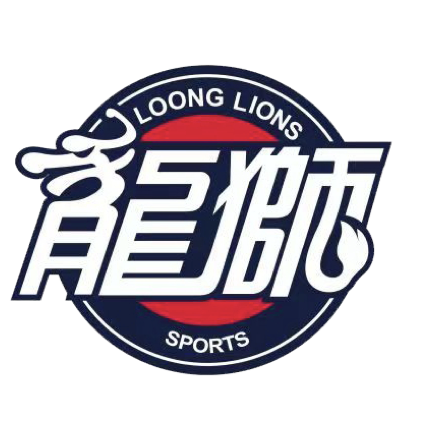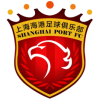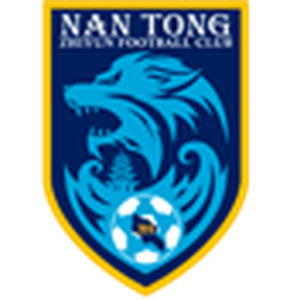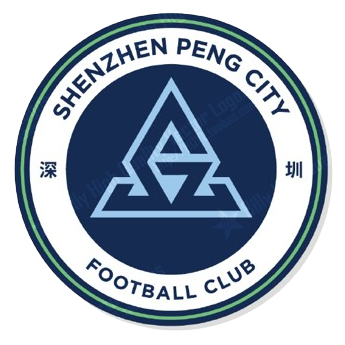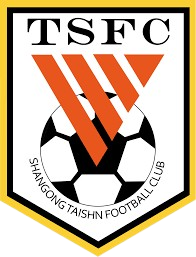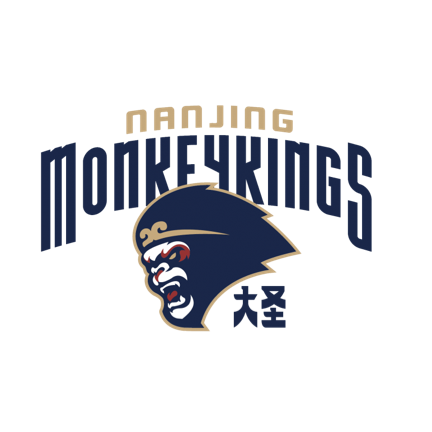
Harish Kanabar拥有30年的教育经验,是一位杰出的教育领导者,具有深厚的学校行政管理和课程开发背景。他热衷于推动学术卓越,构建包容性的教育环境,并赋能教育工作者。Harish以其战略领导力、致力于推进学生的成功以及在教育机构中激发积极变革的能力而受到认可。在他的领导下,深圳市蛇口外籍人员子女学校获得2024福布斯中国杰出国际化学校奖。近日,福布斯中国与Harish Kanabar先生就中国国际化学校的发展现状及未来趋势进行了深入交流。
Q: 您曾在英国、科威特、新加坡和多哈的学校工作,拥有超过30年的教育经验。如今,作为深圳市蛇口外籍人员子女学校的校长,这一角色与您过去的经历有何不同?您观察到哪些关键差异?
Harish Kanabar :之前在英国、科威特、新加坡和多哈的多元教育环境中工作,每一段经历都给我带来了独特的挑战和机遇。然而,担任深圳市蛇口外籍人员子女学校(简称 “SIS”)校长这一角色,既是对过去经验的融合,又在许多方面展现出显著的不同。
最引人注目的差异之一,是深圳本身的文化与职业环境。这座城市充满活力、创新性和前瞻性,它的发展变化之快与SIS培养未来型学生的使命相呼应。这就要求学校在坚守核心价值观的同时,能够快速适应。
另一个关键差异是对技术和创新的重视。尽管卡塔尔和新加坡的学校也强调学术卓越和全人教育,但深圳在此基础上增加了科技融合和创业精神。在SIS,我们不仅为学生规划传统的发展路径,还为他们提供一个需要创造力和适应力的世界。这与深圳作为全球科技中心的定位高度契合。
从社区角度来看,SIS的家长、学生和教师展现出独特的活力。这里有一种明显的协作精神和共同的目标感。虽然我在英国、多哈和新加坡的社区也各具特色,但SIS得益于其真正的国际化人口结构和进步的教育愿景,是多元视角与共同理想的融合。
从职业角度看,校长这一角色需要在SIS的深厚传统与持续创新之间找到平衡。这不仅需要借鉴过去的经验,更要根据这所位于前沿城市的学校的特点进行针对性调整。这种平衡——在尊重历史的同时推动进步——是一项令人兴奋的挑战。
归根结底,所有这些经历的共同点是对学生的承诺。无论是在科威特、新加坡还是深圳,我的目标始终如一:确保每位学生在学术、情感和社交上都为现代世界的复杂性做好准备。在SIS,我深感自己能够以前瞻性的视角延续传统,同时在这个充满活力的环境中探索新的可能性。

Harish Kanabar代表深圳市蛇口外籍人员子女学校受邀出席2024 福布斯中国国际化教育论坛
Q: 深圳是中国经济发展的前沿城市,国际化教育在这座城市的发展令人瞩目。作为深圳第一所国际学校,深圳市蛇口外籍人员子女学校荣膺2024福布斯中国杰出国际化学校奖,请问该校有哪些独特优势吸引着学生和家庭?
Harish Kanabar :SIS在深圳教育领域占据独特地位,不仅因为它是深圳第一所国际学校,更因为它在日新月异的全球背景下十分具有代表性。深圳以创新、快速发展和全球连通性著称,而SIS以同样的活力脱颖而出。
SIS的真正卓越之处在于,它是卓越的传统与前瞻性理念的结合。学生家庭选择我们不仅因为我们的历史,更因为这里有一种切实的团体感和共同目标。在SIS,学习是超越课堂的局限,关于创造有意义、个性化和面向未来的体验。从探究式IB课程到强调技术融合,我们不仅帮助学生取得学术上的成功,也帮助他们为一个需要适应力、协作和创造力的世界做好准备。
SIS的另一个独特优势是我们对情感关系的重视。学生家庭常常提到,学生在这里感受到强烈的归属感。在深圳这样快节奏的城市,外籍家庭往往寻求稳定性,而SIS提供了一个家——一个学生不仅能得到支持,还能被真正看到和重视的地方。这种关怀文化延伸到我们的教师,他们不仅是各自领域的专家,还致力于发掘每个孩子的潜力。
我们在蛇口的这个地理位置进一步提升了这种体验。位于一个充满活力的国际中心,我们能够提供独特的“深圳机会”。从与本地组织的合作到利用深圳作为全球科技和创新领导者的角色,SIS能够提供沉浸式的、并且与21世纪密切相关的学习体验。
最后,我们为学生取得全球成功所做的准备也极具说服力。学生家庭选择SIS是因为他们知道孩子将接受挑战、获得支持,并养成在全球顶尖大学和职业中脱颖而出的技能。福布斯中国将SIS评为杰出国际化学校,我们并不意外——我们不仅代表着卓越,还让国际教育具备变革意义。
在深圳这样令人兴奋的城市,SIS作为一所连接过去、现在和未来的学校脱颖而出,为学生和学生家庭提供教育应有的最佳体验。
Q:ChatGPT、知识图谱和人工智能等技术正在快速发展,为国际教育提供了强大的支持,同时也带来了新挑战。您如何看待这些新兴技术对国际教育的影响?
Harish Kanabar :ChatGPT、知识图谱和人工智能等新兴技术无疑对国际教育具有变革性影响,既带来巨大的机遇,也提出独特挑战。作为教育者,我们的角色是审慎地拥抱这些进步,利用其潜力,同时应对新技术对教学、学习和更广泛教育体验带来的影响。
在我看来,这些技术最令人兴奋的是它们能够实现更加个性化的、适应性更强的学习。像ChatGPT这样的工具可以为学生提供即时、情境感知的支持,帮助他们探索想法、理清概念或以适合个人需求的方式练习技能。这与国际化教育中以探究为基础、以学生为中心的教学方法是相辅相成的。例如,在SIS,这些技术就与我们培养未来型学习者的使命高度契合,我们希望学生具备批判性思维、有效协作和创造性解决问题的能力。
但是,指导学生如何负责任地使用这些工具同样重要。AI驱动平台的普及使伦理问题更加突出——包括学术诚信、错误信息,以及利用工具与培养独立思考之间的平衡。在国际化背景下,多元视角普遍受到推崇,我们必须确保学生学会质疑AI输出的“偏见”,并以批判性态度对待技术。
对教育者而言,这些工具也为深化教学实践提供了新途径。AI驱动的洞察可以帮助我们更好地理解学生的学习进展,用以调整课程,甚至发现学生在学习中的差距。但教师也面临着适应曲线。老师的职业发展必须跟上技术进步的步伐,让教育者可以自信且有能力地有效使用这些工具。
更大的挑战在于如何保持教育的人文元素。尽管AI可以模拟反应和互动,但它无法替代教育中核心的细腻关系、情感智慧和导师的作用。学校必须继续优先考虑这些人文联系,同时将技术作为支持和延伸,而非替代品。
最终,我将这些技术视为增强教育体验的工具,而非重新定义教育。国际化教育的目标是培养全球公民——具备适应力、同理心和文化意识的学生。关键在于如何利用AI及相关技术放大这些价值观,让学生不仅能够驾驭技术驱动的世界,还能以负责任和符合伦理的方式塑造它。对于教育领域而言,这是一个激动人心的时代。而我们有机会以尊重我们核心使命的方式来引领这种技术与教育的融合,它既是一种荣幸,也是一份责任。

Harish Kanabar 发表AI主题演讲
Q: 打造一所拥有百年传承的学校是许多办学机构的梦想。您能否分享您的核心教育理念?您已实施了哪些关键行动?目前正在制定哪些计划?
Harish Kanabar :打造一所跨越世代的学校,不仅仅关乎存续时间是否长久,更在于要对学生、家庭和更广泛的社会群体产生深远而持久的影响。我的核心教育理念是培养学生成为独立思考者、富有同理心的领导者和适应力强的全球公民。这一理念的核心在于对探索求知、人际关系以及实用性的坚持。
探究是学习的基础。学生仅仅获取知识是不够的——他们必须能够提出有意义的问题、学会寻找联系,还要能够将所学应用于现实情境。这在国际化教育中尤为重要,因为学生置身于一个多元且快速变化的全球环境中。
人际关系是所有优秀学校的基石。教育本质上是人文的,教师、学生和家庭之间的联系塑造了学校的文化和成功。我理念的关键部分是培养归属感和协作精神——创造一个每个个体都被看到、重视和支持的环境。
实用性同样重要。一所具有持久影响力的学校不仅要让学生为当下做好准备,还必须让他们为充满不确定性的未来做好准备。这意味着学生在学术卓越之外,还要具备适应力、创造力和跨文化理解等技能。学校必须反映出学生们将要继承的那个世界的面貌,持续关注科技领域的进步、社会的变迁以及全球性的挑战。
SIS已实施的关键行动包括:
制定统一的愿景和战略方向:
作为校长,我领导制定了与学校使命和价值观一致的战略计划,确保各部门协调一致。这一愿景充当了学术发展、运营管理和社区建设的行动指南,强调在不断变化的全球背景下实现可持续发展,并保持自身的重要性和适应性。
加强学校的可持续发展:
我优先将可持续发展融入所有课程,确保学术严谨性与体验式学习的平衡。这包括将环境教育嵌入课程体系中,通过服务性学习来推广绿色实践活动,以及开发诸如以可持续发展为主题的社团、项目和校园倡议等课外学习机会。这些举措使学生具备应对全球环境挑战所需的知识、技能和思维方式,同时促进他们在智力、情感和道德方面的发展。
建设包容和紧密联系的社群文化:
认识到关系的重要性后,我致力于培养一种包容文化,让所有利益相关者——学生、家长、教师和校友——感到被重视。通过社群数据收集、反馈会议和多样性的庆祝活动等举措,我们加强了使我们社区独具特色的情感纽带。
确保运营卓越:
除了学术方面,我还将运营效率和财务可持续性列为重点工作。这包括对校园基础设施进行现代化改造、采用环保做法,以及利用技术改善沟通和简化行政管理流程。
SIS正在制定的计划包括:
加强全球合作伙伴关系,拓展发展机遇:
我计划通过与大学、企业和非政府组织建立伙伴关系,强化我们的国际化身份。这些合作将为学生提供接触现实世界的机会、跨文化的体验,以及全球领导力的发展路径。
构建面向未来的学习生态系统:
我们正在计划将AI、沉浸式学习工具和高级数据分析等新兴技术整合到课程和学校运营中。这将规模化实现个性化学习,并赋能学生在日益数字化的世界中成为领导者。
建立领导力人才培养通道:
认识到培养未来领导者的重要性,我致力于在学校社区的各个层面识别和发展潜在领导者。这包括为职业发展创造针对性机会、提供指导和领导力培训项目,以及在不同岗位和部门之间营造一种协作和共同承担责任的文化氛围。通过赋予养成个人领导力所需的技能、信心和视野,我们激励着下一代领导者在教育及其他领域推动创新并追求卓越。

深圳市蛇口外籍人员子女学校35周年庆
Q: 根据福布斯中国洞察的教育领域数据,大湾区是国际化教育最具活力的地区之一,这里需求旺盛且竞争激烈。作为获得福布斯中国杰出国际化学校奖的学校校长,您一贯坚持哪些教育管理策略和措施以保持学校的高教学质量?
Harish Kanabar :大湾区充满活力的环境既带来机遇,也带来挑战,尤其是要在需求增长和竞争加剧的情况下保持高教学质量。SIS被福布斯中国评为杰出国际化学校,这体现了我们在极具战略性的、精心规划的管理实践推动下,对追求卓越教育的坚定承诺。
SIS的核心教育管理策略包括:
吸引和留住世界级教育者:
卓越的教学始于卓越的教师。我专注于全球招募顶尖人才,确保我们聘用的教师不仅在其学科领域出类拔萃,还深耕于培养学生的成长。为了留住这些人才,我们提供具有竞争力的福利、有意义的专业发展机会,以及一个让教师感到被重视和支持的协作环境。
培养持续改进的文化:
高质量的教学不是静态的,而是随着新研究、技术和方法的发展而演变。在SIS,我们培养一种专业文化,让教师成为终身学习者。通过定期培训、同行观摩和前沿教育工具的获取,确保我们的教师始终站在全球教学趋势的前沿。
平衡创新与传统:
我们尊重那些支撑我们成功的成熟方法,同时也拥抱创新以保持与时俱进。无论是将AI和技术融入课堂、加强探究式学习,还是重新设计协作式学习空间,我们不断重新构想教育以满足未来的需求。
实施严格的质量保证措施:
保持教学标准需要清晰的指标和责任机制。通过定期评估、课堂观察和反馈机制,我们确保教学实践始终保持高水平。这些评估与可操作的支持计划相结合,帮助教师成长和蓬勃发展。
以学生为中心的理念:
我们管理策略的核心是让学生取得成功。我们鼓励教师创造个性化、包容和引人入胜的学习环境,让学生能够主导自己的学习。通过关注每位学生的需求和潜力,我们确保不同类型的学习者都能取得高成就。
加强社区协作:
高质量的教育是学校、家庭和更广泛社区之间的合作。我一直将与家长进行坦诚的沟通和积极的合作放在重要位置,确保他们的观点能够为学生的学习历程带来积极影响。我们强大的社区联系也增强了我们提供符合学生需求和愿望的课程的能力。
SIS保持卓越的措施包括:
战略性专业发展计划:
每位教职员工都要制定一份量身定制的发展计划,使其与自身目标以及学校的愿景相一致。这确保了每位教师朝着一个既能让个人受益,又能让整个学校社区受益的方向成长。数据驱动的决策:
我们利用学生成绩数据来识别教学的优势和需要改进的地方,从而有针对性地分配资源,最大化影响力。
注重福祉:
认识到高期望所带来的压力,我们将教职工和学生的福祉放在首位。一个平衡且具有支持性的环境可以确保大家保持良好的表现,并培养出坚韧的精神。
通过结合战略远见、运营卓越和对学生体验的坚定关注,SIS持续提供大湾区家庭所期望的高标准教育。福布斯中国的认可反映了我们的成功,但我们的重点仍然是不断提高标准,在这个竞争日益激烈的环境中更好地服务社区。
Q: 您最近被任命为“Eye深圳”的全球传播大使。这一角色对您来说有哪些职责?您计划如何利用这一平台为教育和社会带来积极改变?
Harish Kanabar :被任命为“Eye深圳”的全球传播大使,既是一种荣誉,也是一项与我个人和职业价值观高度契合的责任。这一角色为我提供了一个平台,让我得以在全球舞台上展现深圳充满活力与创新的精神,进而展示中国的风采,同时在这座城市、其国际社群和更广泛的世界之间建立有意义的联系。
角色的职责:
作为大使,我的主要职责是分享深圳的故事——一个关于快速发展、尖端创新和文化多样性的故事。这包括与全球受众互动,突出深圳在技术、教育和可持续发展方面的独特贡献。同时,这也是以一种积极、真实的方式代表中国,展示中国对全球协作、文化丰富和进步的承诺。
在教育领域,这一角色让我能够倡导学习所具有的变革力量,以及让学生为一个由全球互联互通所定义的未来做好准备的重要性。这是一个契机,能让深圳乃至中国不仅被视为创新的中心,而且成为培养能够为社会做出积极贡献的全球公民方面的引领者。为教育和社会带来积极改变的愿景。
倡导国际教育作为文化桥梁:
我想要强调国际教育在促进全球理解方面具有变革性力量。通过分享SIS和深圳教育生态系统的最佳实践和成功故事,我希望激励全球机构采用包容、面向未来的方法,以应对全球挑战和机遇。
将深圳定位为全球榜样:
深圳在绿色技术、智慧城市发展和创新方面的成就展示了教育和前瞻性实践如何推动进步。作为大使,我希望展示这些成功,说明深圳如何在经济增长与可持续发展之间取得平衡,造福本地和全球社区。
建立协作伙伴关系:
协作是增长的关键。我计划通过促进深圳与其它城市学校、大学和行业的伙伴关系,加强彼此之间的联系。这些合作将创造机会,将学术严谨性与技术、可持续发展和创业等领域的实际应用相结合。
倡导可持续发展和社会影响:
鉴于深圳在环境创新方面的领先地位,我想要强调教育在培养学生应对气候变化和不平等全球挑战挑战方面所发挥的作用。这包括将深圳以及中国所采取的各项举措作为负责任发展的范例加以宣扬。
为深圳和中国塑造积极的全球叙事:
这一角色的部分任务是向世界真实地展示深圳和中国,分享创新、丰富的文化和进步的故事。通过这样做,我希望建立相互尊重,增进理解,以有意义的互动打破刻板印象。
放大多元声音:
我致力于确保深圳的国际和本地社区成为其发展叙事的一部分。通过突出多元群体的贡献,我希望增强深圳作为一个协作和包容的全球枢纽的声誉。
最终,这一大使角色是关于跨越边界连接人、思想和价值观,同时以自豪和真实代表深圳和中国。这是我作为教育者和领导者工作的延伸,基于这样一种信念:有意义的改变始于对话、理解和共同意愿。

Harish Kanabar 被任命为“Eye深圳”的全球传播大使
Q: 获得印度总领事的荣誉认可是对您在教育领域贡献的非凡肯定。这一荣誉如何影响了您的教育理念,并塑造了您作为教育领导者的历程?从学校发展和师生成长的角度来看,您认为这一认可将对SIS社区产生哪些持久影响?
Harish Kanabar :获得印度总领事的荣誉认可,不仅对我个人,对整个SIS社区来说都是一个意义深远的时刻。这一荣誉再次坚定了我们致力于营造一个学习环境的决心,在这个环境中,所有身为 “第三文化儿童”(TCKs)的学生都感到被赋予了力量、得到了重视并受到鼓舞,去充分发挥他们的全部潜力。
作为一名教育领导者,这一认可强化了我的信念:国际教育不仅仅是学术层面,更关乎于塑造能够在全球环境中蓬勃发展的适应力强、文化能力强的个体。我们的TCKs常常需要平衡多重文化身份,而在SIS,我们为他们提供所需的稳定性、包容性和支持,帮助他们茁壮成长,这是我们引以为豪的。
对我们的教师而言,这一认可是对他们奉献和热情的肯定。它激励我们继续完善教学方法,拥抱创新,确保学生在学术严谨性和情感丰富性上都能受益。它也强调了专业发展和协作的重要性,使教师能够更好地满足学习者的多样化需求。
对我们的学生而言,这一荣誉是一种激励——提醒他们,他们的经历和观点很重要,他们属于一个全球社区,他们的抱负没有边界。它培养了雄心、韧性和目标感,鼓励他们以同理心和信心去引领前行。
从本质上说,这一认可属于整个SIS社区。它放大了我们的使命:培养一种充满活力、全球化的学校文化,让每个学生,无论背景如何,都有权利被看到、被倾听,并被赋能去改变世界。展望未来,我们将以此为催化剂,继续成长、深化联系,并更加坚定地致力于为学生的未来做好准备。
With thirty years of experience, Harish Kanabar is a distinguished educational leader with a robust school administration and curriculum development background. He is passionate about driving academic excellence, fostering inclusive learning environments, and empowering educators. Harish is recognised for his strategic leadership, dedication to student success, and ability to inspire positive change in educational institutions.
Under his leadership, Shekou International School (SIS) in Shenzhen received the 2024 Forbes China Outstanding International School Award. Recently, Forbes China had an in-depth communication with Mr. Harish Kanabar on the current development status and future trends of international schools in China.
Q: You had worked in schools across the UK, Kuwait, Singapore, and Doha, with over 30 years of experience in education. Now, as the Head of School of Shekou International School in Shenzhen, how does this role compare to your previous experiences? What are the key differences you’ve observed?
Having worked in diverse educational settings across the UK, Kuwait, Singapore, and Doha, each role has brought its own unique challenges and opportunities. Stepping into the role of Head of School at Shekou International School (SIS) in Shenzhen, however, feels like a convergence of those experiences, yet distinctly different in several meaningful ways.
One of the most striking differences is the cultural and professional landscape of Shenzhen itself. This city is dynamic, innovative, and forward-thinking—a hub of rapid growth that mirrors SIS’s mission to nurture future-ready students. Compared to other locations, the pace of change here is unparalleled, and it necessitates a school that can adapt quickly while staying grounded in its core values.
Another key difference is the emphasis on technology and innovation. While schools in Qatar and Singapore, placed a strong emphasis on academic excellence and holistic education, Shenzhen brings an added layer of tech integration and entrepreneurship. At SIS, we’re not just preparing students for traditional pathways but also for an evolving world where creativity and adaptability are paramount. This focus aligns closely with the city’s ethos as a global tech powerhouse.
From a community perspective, I’ve noticed a unique vibrancy among our parents, students, and faculty at SIS. There’s a palpable sense of collaboration and shared purpose. While the communities I’ve worked with in the UK, Doha and Singapore had their own richness, SIS benefits from its truly international demographic paired with a progressive educational vision. It’s a blend of diverse perspectives and shared aspirations for the future.
Professionally, this role also requires balancing the deep traditions of SIS with the need to continually innovate. It’s not just about drawing from my previous experiences but also adapting them to fit a school and city that thrive on being ahead of the curve. That balance—honouring history while driving forward—has been an exciting challenge.
Ultimately, what ties all these experiences together is the commitment to students. Whether in Kuwait, Singapore, or Shenzhen, the goal remains the same: to ensure that each student is equipped not just academically, but emotionally and socially, for the complexities of the modern world. At SIS, I feel uniquely positioned to build on that legacy with a forward-thinking lens, drawing on everything I’ve learned across the years while exploring new possibilities in this dynamic context.
Q: Shenzhen is at the forefront of China’s development, and the growth of international education in the city has been remarkable. As the first international school in Shenzhen and 2024 Forbes China Outstanding International School, what unique advantages does Shekou International School offer that attract students and families?
Shekou International School (SIS) holds a unique place in Shenzhen’s educational landscape, not just because of its history as the first international school in the city, but because of what it represents in an evolving global context. Shenzhen is a city defined by its innovation, rapid development, and global connectivity, and SIS mirrors that dynamism in ways that set it apart.
What truly makes SIS exceptional is its legacy of excellence combined with a forward-thinking ethos. Families are drawn to our school not just for its history, but for the tangible sense of community and shared purpose. At SIS, learning goes beyond the classroom—it’s about creating experiences that are meaningful, personalised, and future-focused. From our inquiry-based IB programmes to our emphasis on technology integration, we’re preparing students not just for academic success, but for a world that demands adaptability, collaboration, and creativity.
Another unique advantage of SIS is our approach to relationships. Families often remark on the strong sense of belonging they feel here. In a fast-paced city like Shenzhen, where expatriate families often seek stability, SIS provides a home—a place where students are not just supported but truly seen and valued. This culture of care extends to our faculty, who are not only experts in their fields but also deeply invested in nurturing the potential of every child.
Our location in Shekou further enhances the experience. Positioned in a vibrant, international hub, we offer access to opportunities that are uniquely Shenzhen. From partnerships with local organisations to leveraging the city’s role as a global tech and innovation leader, SIS is able to offer learning experiences that are immersive and relevant to the 21st century.
Lastly, our track record of preparing students for success on the world stage speaks volumes. Families are confident in choosing SIS because they know their children will be challenged, supported, and equipped with the skills they need to thrive in top universities and careers worldwide. It’s no surprise that Forbes China has recognised SIS as 2024 Forbes China Outstanding International School for expatriate families—we represent not just excellence, but also the values that make international education transformative.
In a city as exciting as Shenzhen, SIS stands out as a school that bridges the past, present, and future, offering students and families the best of what education can and should be.
Q: Technologies such as ChatGPT, knowledge graphs, and AI are advancing rapidly, providing strong support for international education while also presenting new challenges. How do you view the impact of these emerging technologies on international education?
Emerging technologies like ChatGPT, knowledge graphs, and AI are undeniably transformative for international education, offering both immense opportunities and unique challenges. As educators, our role is to embrace these advancements thoughtfully, leveraging their potential while addressing the implications for teaching, learning, and the broader educational experience.
From my perspective, the most exciting aspect of these technologies is how they enable more personalised and adaptive learning. Tools like ChatGPT can provide immediate, context-aware support for students, helping them explore ideas, clarify concepts, or practice skills in a way that suits their individual needs. This complements the inquiry-based, student-centered approaches that are foundational to international education. At Shekou International School, for example, these technologies align well with our mission to cultivate future-ready learners who can think critically, collaborate effectively, and solve problems creatively.
However, it’s equally important to guide students in using these tools responsibly. The accessibility of AI-powered platforms brings ethical questions into sharper focus—issues of intellectual integrity, misinformation, and the balance between leveraging tools and fostering independent thought. In an international context, where diverse perspectives are celebrated, we must ensure that students learn to question biases in AI outputs and approach technology as informed, critical thinkers.
For educators, these tools also provide new ways to deepen our practice. AI-driven insights can help us better understand student progress, adapt curricula, and even identify gaps in learning. That said, there’s a learning curve for teachers as well. Professional development must keep pace with technological advances so that educators feel confident and empowered to use these tools effectively.
The broader challenge lies in maintaining the human element of education. While AI can simulate responses and interactions, it cannot replace the nuanced relationships, emotional intelligence, and mentorship that are core to international education. Schools must continue to prioritise these human connections while integrating technology as support and extension, not as a substitute.
Ultimately, I see these technologies as tools to enhance the educational experience rather than redefine it. International education is about fostering global citizens—students who are adaptable, empathetic, and culturally aware. The key is to use AI and related technologies to amplify these values, preparing students not only to navigate a tech-driven world but to shape it responsibly and ethically. It’s a thrilling time for education, and the opportunity to guide this integration in ways that honour our core mission is both a privilege and a responsibility.
Q: Building a school with a legacy that spans centuries is a dream for many institutions. Could you share your core educational philosophy? What key actions have you implemented, and what plans are you currently developing?
Building a school with a legacy that spans generations isn’t just about longevity—it’s about creating a meaningful and lasting impact on the lives of students, families, and the wider community. My core educational philosophy revolves around empowering students to become independent thinkers, empathetic leaders, and adaptable global citizens. At its heart, this philosophy is guided by a commitment to inquiry, relationships, and relevance.
Inquiry forms the foundation of learning. It’s not enough for students to simply acquire knowledge—they must develop the skills and mindset to ask meaningful questions, seek connections, and apply their learning to real-world contexts. This is particularly critical in international education, where students are immersed in a diverse and rapidly changing global landscape.
Relationships are the cornerstone of any great school. Education is deeply human, and the connections between teachers, students, and families shape the culture and success of a school. A key part of my philosophy is fostering a sense of belonging and collaboration—creating an environment where every individual feels seen, valued, and supported.
Relevance is equally important. A school with a lasting legacy must prepare students not just for the present but for an uncertain future. This means emphasising skills like adaptability, creativity, and cross-cultural understanding, alongside academic excellence. Schools must reflect the world their students will inherit, staying attuned to advancements in technology, societal shifts, and global challenges.
Key Actions Implemented
Developing a Unified Vision and Strategic Direction:
As Head of School, I have led the creation of a strategic plan that aligns with the school’s mission and values, ensuring coherence across divisions and departments. This vision serves as a roadmap for academic, operational, and community growth, emphasising long-term sustainability and relevance in an ever-changing global context.
Strengthening Sustainability Across the School:
I have prioritised integrating sustainability into all aspects of our programmes, ensuring a balance between academic rigour and experiential learning. This includes embedding environmental education within the curriculum, promoting green practices through service learning, and developing co-curricular opportunities such as sustainability-focused clubs, projects, and campus initiatives. These efforts equip students with the knowledge, skills, and mindset to address global environmental challenges while fostering their intellectual, emotional, and ethical development.
Building an Inclusive and Connected Community:
Recognising the importance of strong relationships, I have worked to foster a culture of inclusion, where all stakeholders—students, parents, faculty, and alums—feel valued. Initiatives such community data collection, feedback sessions, and shared celebrations of diversity help strengthen the bonds that make our community unique.
Ensuring Operational Excellence:
Beyond academics, I have prioritised operational efficiency and financial sustainability. This includes modernising campus infrastructure, adopting environmentally sustainable practices, and leveraging technology to improve communication and streamline administrative processes.
Plans in Development
Enhancing Global Partnerships and Opportunities:
I aim to strengthen our global identity by developing partnerships with universities, corporations, and NGOs. These collaborations will provide students with real-world exposure, cross-cultural experiences, and pathways to global leadership.
Building a Future-Ready Learning Ecosystem:
Plans are underway to integrate emerging technologies like AI, immersive learning tools, and advanced data analytics into the curriculum and operations. This will enable personalised learning at scale and empower students to become leaders in an increasingly digital world.
Developing a Leadership Pipeline:
Recognising the importance of cultivating leaders of the future, I am dedicated to identifying and developing potential leaders at all levels of the school community. This includes creating targeted opportunities for professional growth, offering mentorship and leadership training programs, and fostering a culture of collaboration and shared responsibility across roles and departments. By empowering individuals with the skills, confidence, and vision to lead, we are not only ensuring a strong succession plan but also inspiring the next generation of leaders who will drive innovation and excellence in education and beyond.
Q: According to Forbes China’s data on the education sector, the Greater Bay Area is one of the most dynamic regions for international education, with high demand and intense competition. As 2024 Forbes China Outstanding International School, what educational management strategies and measures have you consistently upheld to maintain the school’s high-quality teaching standards?
The Greater Bay Area’s dynamic environment presents both opportunities and challenges, particularly in maintaining high-quality teaching standards amidst growing demand and competition. At Shekou International School (SIS), our recognition as 2024 Forbes China Outstanding International School is a reflection of our unwavering commitment to excellence in education, driven by strategic and deliberate management practices.
Core Educational Management Strategies
Attracting and Retaining World-Class Educators:
Exceptional teaching begins with exceptional teachers. I have focused on recruiting top talent globally, ensuring we hire educators who not only excel in their disciplines but are also deeply committed to nurturing students. To retain this talent, we provide competitive benefits, meaningful professional development, and a collaborative environment where teachers feel valued and supported.
Cultivating a Culture of Continuous Improvement:
High-quality teaching is not static; it evolves with new research, technologies, and methodologies. At SIS, we foster a professional culture where teachers are lifelong learners. Regular training workshops, peer observations, and access to cutting-edge educational tools ensure our faculty stays ahead of global trends in pedagogy.
Balancing Innovation with Tradition:
While we honour the proven approaches that have underpinned our success, we also embrace innovation to stay relevant. Whether it’s integrating AI and technology into the classroom, enhancing inquiry-based learning, or redesigning spaces for collaborative learning, we are constantly reimagining education to meet the needs of tomorrow.
Implementing Rigorous Quality Assurance Measures:
Maintaining teaching standards requires clear metrics and accountability. Through regular reviews, classroom observations, and feedback mechanisms, we ensure teaching practices remain consistently high. These evaluations are paired with actionable support plans to help educators grow and thrive.
Fostering a Student-Centred Philosophy:
At the heart of our management strategies is a commitment to student success. We encourage our educators to create personalised, inclusive, and engaging learning environments that empower students to take ownership of their education. By focusing on the individual needs and potential of each student, we ensure high achievement levels across diverse learners.
Strengthening Community Collaboration:
High-quality education is a partnership between school, families, and the wider community. I have prioritised open communication and active collaboration with parents, ensuring their perspectives contribute to the learning journey. Our strong community ties also enhance our ability to deliver programs that resonate with the needs and aspirations of our students.
Measures for Sustained Excellence
Strategic Professional Development Plans:
Each faculty member develops a tailored development plan aligned with their goals and the school’s vision. This ensures every teacher grows in a direction that benefits both the individual and the broader community.
Data-Driven Decision-Making:
We use student achievement data metrics to identify strengths and areas for growth. This helps us target resources where they are most needed and maximise impact.
Emphasising Well-Being:
Recognising the pressures of high expectations, we prioritise the well-being of both staff and students. A balanced, supportive environment ensures sustained performance and fosters resilience.
By combining strategic foresight, operational excellence, and an unwavering focus on the student experience, we at SIS continue to deliver the high standards of education that families in the Greater Bay Area have come to expect. Our recognition by Forbes China reflects our success, but our focus remains on continuously raising the bar to serve our community better in an ever-competitive landscape.
Q: You were recently appointed as Eye Shenzhen’s Global Communication Ambassador. What responsibilities does this role entail for you, and how do you envision using this platform to create positive change in education and society?
Being appointed as one of Eye Shenzhen’s Global Communication Ambassador is both an honour and a responsibility that aligns closely with my personal and professional values. This role provides a platform to represent the vibrant, innovative spirit of Shenzhen and, by extension, China, on a global stage while fostering meaningful connections between the city, its international community, and the wider world.
Responsibilities of the Role
As an ambassador, my primary responsibility is to share Shenzhen’s story—a story of rapid development, cutting-edge innovation, and cultural diversity. This involves engaging with global audiences to highlight Shenzhen’s unique contributions to technology, education, and sustainable development. At the same time, it’s about representing China in a positive, authentic way by showcasing the country’s commitment to global collaboration, cultural richness, and progress.
In the context of education, this role allows me to advocate for the transformative power of learning and the importance of preparing students for a future defined by global interconnectedness. It’s an opportunity to position Shenzhen—and China—as not only a hub of innovation but also a leader in nurturing global citizens who can contribute positively to society.
Vision for Positive Change in Education and Society
Advocating for International Education as a Bridge Between Cultures:
I aim to highlight the transformative power of international education in fostering global understanding. By sharing best practices and success stories from Shekou International School and Shenzhen’s education ecosystem, I hope to inspire institutions worldwide to adopt inclusive, future-focused approaches that align with global challenges and opportunities.
Positioning Shenzhen as a Global Role Model:
Shenzhen’s achievements in green technology, smart urban development, and innovation demonstrate how education and forward-thinking practices can drive progress. As an ambassador, I seek to showcase these successes to illustrate how Shenzhen balances economic growth with sustainability, benefiting both the local and global community.
Building Collaborative Partnerships:
Collaboration is key to growth. I aim to focus on strengthening connections between Shenzhen and other cities by promoting partnerships with schools, universities, and industries. These collaborations will create opportunities that integrate academic rigour with real-world applications in areas such as technology, sustainability, and entrepreneurship.
Championing Sustainability and Social Impact:
With Shenzhen leading the way in environmental innovation, I aim to emphasise the role education plays in preparing students to address global challenges like climate change and inequality. This includes highlighting Shenzhen’s and China’s initiatives as models of responsible development.
Fostering a Positive Global Narrative for Shenzhen and China:
Part of this role involves authentically representing Shenzhen and China to the world, sharing stories of innovation, cultural richness, and progress. By doing so, I aim to build mutual respect and enhance understanding, countering stereotypes with meaningful engagement.
Amplifying Diverse Voices:
I am committed to ensuring that Shenzhen’s international and local communities are part of its evolving narrative. By highlighting the contributions of diverse groups, I hope to strengthen the city’s reputation as a collaborative and inclusive global hub.
Ultimately, this ambassadorship is about connecting people, ideas, and values across borders while representing Shenzhen and China with pride and authenticity. It’s an extension of my work as an educator and leader, driven by the belief that meaningful change begins with dialogue, understanding, and the collective will to make a difference.
Q: Receiving the honorary recognition from the Indian Consul General is a remarkable testament to your contributions in education. How has this honour influenced your educational philosophy and shaped your journey as an educational leader? From the lens of school development and growth of the school’s faculty and students, what lasting impact do you believe this recognition will have on the SIS community?
Receiving the honorary recognition from the Indian Consul General is a deeply meaningful moment, not just for me but for the entire SIS community. This honour reaffirms our commitment to fostering a learning environment where students—all of whom are Third Culture Kids (TCKs)—feel empowered, valued, and inspired to achieve their full potential.
As an educational leader, this recognition strengthens my belief that international education is about more than academics; it is about shaping adaptable, culturally competent individuals who can thrive in a global landscape. Our TCKs often navigate a unique journey, balancing multiple cultural identities, and at SIS, we take pride in providing them with the stability, inclusivity, and support they need to flourish.
For our faculty, this recognition is a testament to their dedication and passion. It encourages us to continue refining our pedagogical approaches, embracing innovation, and ensuring that our students receive an education that is both academically rigorous and emotionally enriching. It reinforces the importance of professional development and collaboration, enabling our teachers to better support the diverse needs of our learners.
For our students, this honour serves as an inspiration—a reminder that their experiences and perspectives matter, that they belong to a global community, and that their aspirations have no boundaries. It fosters a spirit of ambition, resilience, and purpose, encouraging them to lead with empathy and confidence.
At its core, this recognition belongs to the entire SIS community. It amplifies our mission to cultivate a dynamic, globally minded school culture where every student, regardless of background, has a rightful presence to be seen, heard, and empowered to make a difference. Moving forward, we embrace this as a catalyst for continued growth, deeper connections, and an even greater commitment to preparing our students for the future.

声明:品牌之声相关资讯来自于被采访对象,非福布斯编辑内容。
精彩内容





